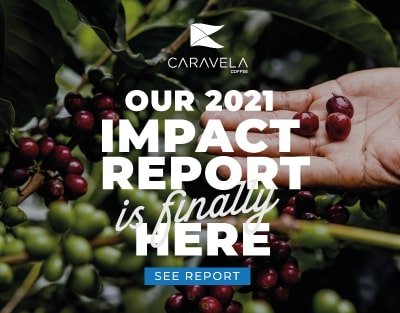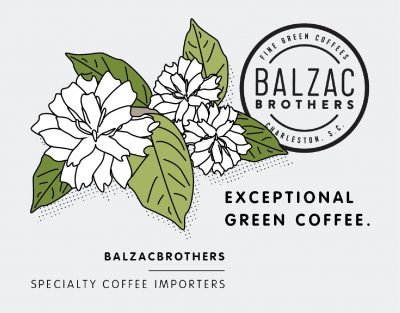Looking to stay updated on the latest in the coffee world? Look no further than Perfect Daily Grind, the premier digital coffee publication. With a wide range of articles covering everything from industry production and trade to coffee shop trends and barista tips, Perfect Daily Grind offers a wealth of information for coffee enthusiasts of all levels. Whether you’re a professional barista looking for innovative techniques or a home brewing aficionado seeking the latest in coffee trends, Perfect Daily Grind has you covered. Stay informed and inspired with their informative articles and engaging content. Subscribe to their newsletter today to receive the latest coffee news and educational resources directly in your inbox.
Industry Production & Trade
How does the timing of capital affect coffee farmers?
Coffee farmers heavily rely on capital for various aspects of their operations, from purchasing seeds to investing in equipment and infrastructure. The timing of access to capital plays a crucial role in their ability to effectively manage their farms. Without timely capital, farmers may struggle to make necessary investments or meet expenses during the coffee growing season. For example, if farmers cannot secure capital to purchase seeds or fertilizers at the beginning of the season, it can negatively impact crop yield and quality. Additionally, the timing of capital can also affect farmers’ ability to address unforeseen events such as disease outbreaks or weather-related damage. Timely access to capital allows farmers to mitigate risks and make proactive decisions to maintain the productivity and profitability of their farms.
How are Indian coffee farmers recovering after recent storms?
Indian coffee farmers have faced significant challenges due to recent storms and extreme weather events. These storms have caused widespread damage to coffee farms, resulting in production losses and economic hardship for farmers. The recovery process for Indian coffee farmers involves several key steps. Firstly, farmers must assess the extent of the damage and identify areas that require immediate attention, such as fallen trees or damaged infrastructure. Following this, farmers need to secure financial resources to repair and restore their farms. This can involve seeking assistance from government agencies, non-profit organizations, or even international aid programs. Additionally, farmers may need to replant damaged coffee trees, which requires access to quality seeds and technical support. Finally, it is essential for farmers to implement strategies to build resilience against future extreme weather events, such as implementing better irrigation systems or planting windbreaks. Through these recovery efforts, Indian coffee farmers can gradually rebuild their farms and livelihoods.
How has robusta production in Nicaragua developed in recent years?
In recent years, Nicaragua has experienced significant growth in robusta coffee production. This increase in robusta production can be attributed to several factors. Firstly, the suitability of Nicaragua’s climate and soil conditions for robusta cultivation has led to favorable yields and quality. Additionally, robusta coffee demand has been rising globally, particularly for use in espresso blends and instant coffee. This increased demand has provided an economic incentive for Nicaraguan farmers to expand their robusta production. Moreover, the availability of technical assistance and financial support from organizations and governments has also contributed to the development of robusta production in Nicaragua. By providing farmers with the necessary resources and knowledge, these initiatives have helped improve cultivation and processing practices, resulting in higher-quality robusta coffee. Overall, the growth of robusta production in Nicaragua has had a positive impact on the country’s coffee industry and economy.
Can coffee production in the Amazon be sustainable?
Coffee production in the Amazon region faces several sustainability challenges due to its unique ecosystem and the pressure of agricultural expansion. However, with proper practices and initiatives, it is possible to achieve sustainable coffee production in the Amazon. One of the key factors for sustainable coffee production in the region is the implementation of agroforestry systems. These systems involve growing coffee alongside native tree species, which helps maintain biodiversity, improve soil health, and provide shade to the coffee plants. Moreover, agroforestry systems contribute to carbon sequestration, reducing the industry’s overall carbon footprint. Additionally, sustainable coffee production in the Amazon can be achieved through the adoption of organic farming practices that minimize the use of synthetic inputs and prioritize soil conservation. Strengthening social and economic sustainability is also crucial, ensuring fair labor practices and promoting economic development within local communities. By combining these strategies, coffee production in the Amazon can thrive while preserving the region’s unique environment.
Resolving environmental issues in coffee production
Coffee production has numerous environmental impacts, including deforestation, water pollution, and greenhouse gas emissions. Resolving these environmental issues requires the collective effort of all stakeholders in the coffee industry. Firstly, implementing sustainable agricultural practices is critical. This involves promoting shade-grown coffee, using organic farming methods, and minimizing the use of synthetic fertilizers and pesticides. These measures help protect ecosystems, preserve biodiversity, and reduce chemical pollution. Additionally, reducing the carbon footprint of coffee production is essential. This can be achieved through practices such as efficient energy use in processing facilities, promoting renewable energy sources, and incentivizing carbon offset initiatives. Water management is another key environmental issue in coffee production. Implementing water conservation practices, such as proper irrigation techniques and wastewater treatment, can help minimize water pollution and manage water resources more sustainably. Collaborative efforts from governments, coffee companies, and farmers are crucial in implementing and enforcing these environmental practices. By collectively addressing these environmental issues, the coffee industry can contribute to a more sustainable future.

This image is property of perfectdailygrind.com.
Roasting
How can roasters sell coffee to grocery stores and supermarkets?
Selling coffee to grocery stores and supermarkets can provide roasters with broader exposure and increased sales opportunities. To effectively enter this market, there are several key steps that roasters should consider. Firstly, roasters need to ensure that their coffee meets the quality standards and preferences of grocery store buyers. This involves consistent quality control and product testing to deliver a reliable and desirable product to consumers. Additionally, having clear and visually appealing packaging is essential for capturing the attention of potential customers. Roasters should also be prepared to provide competitive pricing and supply chain capabilities to meet the volume demands of grocery stores. Building relationships with buyers through direct contact, attending industry trade shows, or partnering with distributors can also provide roasters with valuable opportunities. Finally, investing in marketing efforts to raise awareness of their brand and product offerings can help roasters stand out in a crowded market. By implementing these strategies, roasters can successfully sell their coffee in grocery stores and supermarkets, reaching a wider consumer base.
How can roasters store and transport roasted coffee safely & effectively?
Proper storage and transportation of roasted coffee are crucial to maintaining its quality and freshness. To ensure the safety and integrity of the coffee, roasters should follow certain practices. Firstly, roasted coffee should be stored in airtight, opaque containers that protect it from light, air, and moisture. Storing coffee in a cool, dry place, away from direct sunlight and strong odors, helps maintain its flavor and aroma. Additionally, it is important to avoid exposing roasted coffee to temperature fluctuations, as this can accelerate flavor degradation. When transporting roasted coffee, roasters should use packaging that effectively protects the product from physical damage and prevents exposure to oxygen and moisture. Vacuum-sealed bags or nitrogen-flushed packaging can help extend the shelf life of the coffee during transportation. Roasters should also consider the timing and duration of transportation to minimize the amount of time the coffee spends in transit. Properly trained transport personnel and the use of climate-controlled vehicles are crucial for maintaining optimal storage conditions during transportation. By following these practices, roasters can ensure that their roasted coffee arrives at its destination safely and retains its quality.
How do specialty roasters manage their green coffee supply?
Specialty roasters place a high emphasis on sourcing and managing their green coffee supply to ensure quality and traceability. To effectively manage their green coffee supply, specialty roasters typically establish direct relationships with coffee farmers, cooperatives, or importers. These direct relationships allow roasters to have more control over the entire supply chain and build partnerships based on trust and transparency. Moreover, specialty roasters often prioritize sourcing coffee from specific origins or farms known for producing exceptional specialty-grade beans. This focus on quality and origin allows roasters to offer unique and distinct coffee profiles to their customers. Additionally, specialty roasters regularly cup and evaluate samples of green coffee before making purchasing decisions. This cupping process ensures that the coffee meets the roasters’ quality standards and flavor profiles. Furthermore, specialty roasters invest in ongoing education and training to stay updated on industry trends and advancements in sourcing practices. By prioritizing direct relationships, quality control, and continuous learning, specialty roasters effectively manage their green coffee supply and deliver exceptional coffee to their customers.
Specialty roasters: How often should you rotate your green coffee?
Rotating green coffee is essential for specialty roasters to maintain product freshness and avoid inventory stagnation. The frequency of green coffee rotation depends on several factors, including the coffee’s origin, roast profile, and expected shelf life. Generally, specialty roasters aim to rotate their green coffee inventory every 3 to 6 months. However, more delicate or lightly roasted coffees may have a shorter recommended shelf life and require more frequent rotation. Roasters should consider the coffee’s flavor stability and aroma retention over time when determining the appropriate rotation schedule. Factors such as package quality, storage conditions, and the presence of oxygen and moisture can also influence the need for more frequent rotation. Regular cupping and sensory evaluation of the coffee are crucial in assessing and determining the optimal rotation schedule. By actively monitoring and rotating their green coffee inventory, specialty roasters ensure that their roasted coffee consistently delivers the desired flavor and quality to consumers.
How can you reduce emissions during coffee roasting?
Reducing emissions during coffee roasting is a critical step in promoting sustainable practices within the coffee industry. There are several strategies that roasters can implement to minimize their environmental impact. Firstly, investing in energy-efficient roasting equipment can significantly reduce emissions. Roasters should look for roasters with advanced technologies that optimize energy usage and reduce waste heat. Additionally, optimizing roasting profiles and batch sizes can help reduce energy consumption and emissions. Roasters should regularly evaluate and fine-tune their roasting processes to minimize the time and energy required to achieve desired roast levels. Furthermore, using cleaner energy sources, such as electricity from renewable sources or natural gas, can significantly reduce the carbon footprint of coffee roasting. Roasters should also prioritize emissions monitoring and measurement to accurately assess their environmental impact and track progress over time. Finally, implementing waste reduction and recycling practices can further reduce the environmental footprint of coffee roasting operations. By combining these strategies, coffee roasters can significantly reduce their emissions and contribute to a more sustainable coffee industry.

This image is property of perfectdailygrind.com.
Coffee Shop & Barista
How to find sustainable specialty coffee shops and roasters
If you’re looking to support sustainable specialty coffee shops and roasters, there are several key factors to consider. Firstly, check if the coffee shop or roaster has certifications or affiliations with recognized sustainable organizations. These certifications, such as Fair Trade, Rainforest Alliance, or Organic, indicate that the establishment meets certain social and environmental standards. Additionally, research the coffee shop’s or roaster’s sourcing practices. Sustainable establishments will often prioritize direct trade relationships, working with farmers who employ responsible farming practices and pay fair wages. Moreover, sustainable coffee shops and roasters may also focus on community engagement and social impact. Look for establishments that support local communities, implement environmentally friendly practices, and promote social initiatives. Finally, it is essential to consider the shop’s or roaster’s waste management practices. Sustainable establishments prioritize reducing, reusing, and recycling waste, and may utilize compostable or biodegradable packaging. By considering these factors, you can find sustainable specialty coffee shops and roasters that align with your values and contribute to a more sustainable coffee industry.
How can baristas foam milk for specialty coffee without using steam?
Foaming milk without using steam is a technique known as alternative milk frothing. This method is commonly used in specialty coffee shops that cater to non-dairy milk preferences or have limited equipment. There are several approaches to achieve frothed milk without steam. One method involves using a French press or immersion blender to froth the milk manually. Baristas can heat the milk to the desired temperature and then use the French press or immersion blender to create a frothy texture. Another approach involves using a handheld milk frother or electric whisk to incorporate air into the milk and create foam. This method requires preheating the milk, then using the frother or whisk to create a frothy consistency. Furthermore, some specialty coffee shops utilize milk frothers specifically designed for non-dairy milk alternatives, which can effectively froth various plant-based milks. Regardless of the method used, mastering alternative milk frothing requires practice and experimentation to achieve desired textures and consistency. By employing these techniques, baristas can cater to diverse milk preferences while still delivering high-quality specialty coffee experiences.
What’s it like to be a specialty coffee barista in the Middle East?
Being a specialty coffee barista in the Middle East offers a unique experience influenced by the region’s rich coffee culture and rapid growth in specialty coffee consumption. Middle Eastern coffee traditions, such as Turkish coffee and Arabic coffee, heavily influence the coffee landscape in the region. As a specialty coffee barista in the Middle East, you would have the opportunity to work with a variety of coffee preparations, including traditional Arabic coffee brewing methods such as Dallah pots or Ibrik. Moreover, Middle Eastern coffee shops often place a strong emphasis on hospitality and creating an inviting atmosphere for customers. Baristas are expected to deliver exceptional customer experiences and engage in conversations about coffee origins, flavor profiles, and brewing methods. The Middle East has become a hub for specialty coffee events and competitions, providing baristas with opportunities to showcase their skills and network with industry professionals. Additionally, the region’s growing interest in specialty coffee has led to the emergence of local roasters and coffee shops, further expanding career opportunities for specialty coffee baristas. Overall, being a specialty coffee barista in the Middle East offers a blend of tradition, innovation, and an exciting coffee culture.
Is there space for new coffee competitions?
The coffee industry has seen a significant rise in the number of coffee competitions in recent years, showcasing the expertise and creativity of baristas and coffee professionals worldwide. Despite this growth, there is still plenty of space for new coffee competitions. The industry is continuously evolving, with new brewing techniques, equipment, and flavors emerging. New coffee competitions provide a platform for baristas to experiment, showcase their skills, and push the boundaries of coffee preparation and presentation. Furthermore, coffee competitions can help highlight specific regions, coffee origins, or cultivation methods that may be underrepresented in existing competitions. By focusing on unique aspects of the coffee industry, new competitions can contribute to the diversification and elevation of the specialty coffee sector. Additionally, new competitions can foster innovation and collaboration, stimulating advancements in coffee production, processing, and brewing techniques. Therefore, there is ample room for new coffee competitions to emerge, further enriching the coffee industry and offering opportunities for baristas to showcase their talent.
How can competitors source coffee for the World Barista Championships?
Competitors in the World Barista Championships (WBC) are responsible for sourcing their own coffee to use in their competition routines. The coffee selection process for the WBC is crucial to ensuring the highest quality and a compelling presentation. Competitors often start by identifying specific flavor profiles or profiling techniques they want to showcase. This leads them to research and approach coffee importers, specialty coffee roasters, or green coffee producers who can supply coffee that meets their requirements. Establishing direct relationships with coffee farmers or cooperatives allows competitors to gain insights and access to unique coffees that align with their competition goals. Additionally, competitors may rely on industry connections or recommendations from experienced professionals to source exceptional coffee. It is imperative for competitors to communicate their specific needs and preferences with their chosen coffee suppliers to guarantee the availability and suitability of the coffee for the competition routine. By carefully selecting and sourcing their coffee, competitors can enhance their chances of delivering outstanding performances and captivating the judges at the World Barista Championships.

This image is property of perfectdailygrind.com.
Consumers
Does olive oil coffee have a place in specialty coffee?
Olive oil coffee, also known as olive oil brew or olive oil infusion, is a unique coffee preparation method that blends the flavors and attributes of olive oil with coffee. While olive oil coffee might not typically be considered a part of specialty coffee, it does have a place within the diverse range of coffee experiences. The addition of olive oil can impart distinct flavors and aromas to the coffee, creating a unique taste profile that appeals to certain preferences. However, it is essential to note that olive oil coffee is not commonly found in specialty coffee shops or competitions, as it deviates from traditional brewing methods. Furthermore, the quality of the olive oil used and the brewing technique greatly influence the overall result, making it a more subjective and personalized experience. Ultimately, the inclusion of olive oil coffee in the specialty coffee landscape depends on the openness and experimentation of individual coffee enthusiasts and establishments. While it may not suit every coffee drinker’s taste, olive oil coffee offers an opportunity for creative exploration and flavor innovation within the broader specialty coffee industry.
Was canned coffee invented in Japan?
Canned coffee was indeed invented in Japan and has become an integral part of the country’s coffee culture. The development of canned coffee can be attributed to the Japanese company UCC Ueshima Coffee Co., which introduced the world’s first canned coffee in 1969. This innovative packaging format quickly gained popularity and convenience in Japan, allowing consumers to enjoy coffee on-the-go without the need for brewing or extensive preparation. Since its introduction, canned coffee has become a staple in vending machines, convenience stores, and supermarkets throughout Japan. The success of canned coffee in Japan has also influenced the global coffee market, with other countries adopting similar packaging formats and ready-to-drink coffee products. Today, canned coffee remains a significant segment of the Japanese coffee market and serves as a cultural symbol of convenience and innovation in the coffee industry.
What is mazagran coffee & how do you make it?
Mazagran coffee is a refreshing and traditional coffee beverage with origins in Algeria. It is typically served cold and combines coffee, lemon juice, sugar, and ice. To make mazagran coffee, start by brewing a strong cup of coffee using your preferred brewing method. It is recommended to use a dark roast coffee to achieve the desired flavor profile. In a separate glass, combine fresh lemon juice and sugar, adjusting the sweetness to your taste preferences. Add ice cubes to a serving glass and pour the brewed coffee over the ice. Finally, add the lemon juice and sugar mixture to the glass and stir until well combined. Mazagran coffee can be garnished with lemon slices or mint leaves for added freshness. This summery and citrus-infused coffee drink is perfect for hot weather or as a refreshing pick-me-up throughout the day.
How does snapchilling coffee work?
Snapchilling is a coffee brewing technique that involves rapidly chilling freshly brewed coffee to lock in its flavors and aromas. The process of snapchilling coffee begins by brewing the coffee using your preferred method, whether it be pour-over, French press, or espresso. Once the coffee is brewed, it is immediately transferred to a vessel with ice and quickly stirred or shaken to cool it down. The rapid cooling process preserves the volatile compounds in the coffee, preventing them from dissipating due to prolonged exposure to heat. Snapchilling can enhance the overall sensory experience of the coffee, accentuating its unique flavor characteristics and creating a refreshing and vibrant taste. Snapchilled coffee is often served over ice, accompanied by milk, or enjoyed as a cold brew alternative. This technique allows coffee drinkers to experience the full flavor potential of the coffee while enjoying a chilled and refreshing beverage.
What is a babyccino & why do coffee shops serve them?
A babyccino is a small, non-caffeinated beverage created for young children to enjoy in coffee shops. It is typically made with warm milk foam and occasionally topped with cocoa powder or a sprinkle of cinnamon. Babyccinos offer young children the experience of enjoying a special drink alongside their parents or caregivers in a coffee shop setting. The warm milk foam provides a comforting and familiar taste without the caffeine content found in traditional coffee drinks. Babyccinos are often served in small cups or mugs and can be customized to suit individual preferences, such as using alternative milk options or adding a touch of sweetness with a drizzle of honey. Coffee shops serve babyccinos as a way to make the coffee shop experience inclusive for families with young children. It allows children to feel involved, enjoy a beverage alongside their parents, and develop positive associations with coffee shops from a young age.

This image is property of perfectdailygrind.com.
News & Updates
Coffee News Recap, 6 Oct: Submissions open for 2024-27 World Coffee Roasting Championship sponsorship, 2023 World Coffee Innovation…
In this week’s coffee news recap, submissions have opened for the sponsorship of the 2024-27 World Coffee Roasting Championship (WCRC), providing a valuable opportunity for companies to support and align their brand with this prestigious event. Additionally, the 2023 World Coffee Innovation (WCI) Award winners were recently announced at the Caffè Culture event. These awards celebrate innovation and excellence in the coffee industry, recognizing advancements in roasting, brewing, packaging, and sustainability practices. The news recap highlights these significant industry events and provides a brief overview of the latest happenings in the coffee world.
Coffee News Recap, 29 Sep: Sixteen AeroPress Championships to take place in October, first-ever…
In the latest coffee news recap, it was announced that sixteen AeroPress Championships will be taking place in October, showcasing the versatility and creativity of this popular coffee brewing method. The competitions allow baristas and coffee enthusiasts to demonstrate their skills and explore different recipes and techniques. The news recap also covers the first-ever Steampunk Coffee Maker being unveiled, offering a unique and innovative brewing experience for coffee lovers. Additionally, it provides a roundup of other notable events and developments within the coffee industry, keeping readers up to date with the latest news and trends.
Coffee News Recap, 22 Sep: PRF Guatemala announced for 2024, US Americans choose coffee…
This week’s coffee news recap features the announcement of the PRF Guatemala event scheduled for 2024. PRF events provide an opportunity for coffee professionals and enthusiasts to come together, network, and celebrate the coffee culture of different regions. The recap also highlights a survey that reveals coffee as the preferred morning beverage for the majority of Americans. This insight into consumer preferences reinforces the enduring popularity and significance of coffee in daily life. Additionally, the news recap provides a roundup of other noteworthy industry news and updates, keeping readers informed about the latest developments in the coffee world.
Coffee News Recap, 15 Sep: Thousands attend PRF Colombia in Medellín, SCA launches four…
In this coffee news recap, the spotlight is on the successful PRF Colombia event held in Medellín, which attracted thousands of coffee enthusiasts, professionals, and industry stakeholders. These regional events offer a platform for showcasing Colombian coffee culture, networking, and knowledge exchange. The recap also highlights the launch of four new SCA Coffee Skills Program modules, providing valuable educational resources and training opportunities for coffee professionals. Additionally, readers can find a roundup of other coffee-related news and updates, providing a comprehensive overview of recent happenings in the industry.
Coffee News Recap, 8 Sep: Thousands set to attend PRF Colombia next week, Saudi Coffee…
This coffee news recap focuses on the upcoming PRF Colombia event, which is expected to attract thousands of attendees and offers a unique opportunity to explore the rich coffee culture of Colombia. The recap also covers the Saudi Coffee Festival, a prestigious event that showcases the Kingdom’s growing coffee scene and provides a platform for coffee professionals to present their products and services. Furthermore, the news recap includes a roundup of other coffee-related news and updates, ensuring readers are informed about the latest industry trends and developments.

This image is property of perfectdailygrind.com.
Other
How is coffee consumption changing in Nigeria?
Coffee consumption in Nigeria is undergoing significant changes influenced by shifting demographics, urbanization, and increased exposure to global coffee culture. Traditionally, Nigeria has been a country with a strong tea-drinking culture, but coffee is gradually gaining popularity among the younger generation and urban dwellers. This shift can be attributed to various factors, including the influence of Western coffee chains, improved access to international coffee brands, and a growing middle class with disposable income. As a result, more coffee shops, cafes, and specialty coffee establishments are emerging in Nigerian cities, catering to the evolving preferences and demands of coffee consumers. Furthermore, the rise of local coffee roasters and specialty coffee events is indicative of a growing coffee culture and the desire for quality and diverse coffee experiences. While tea still holds cultural significance, coffee consumption in Nigeria is on the rise, highlighting the country’s evolving tastes and coffee industry landscape.
A specialty coffee shop tour of Toulouse, France
Toulouse, France, offers a vibrant specialty coffee scene with a range of unique and exciting coffee shops to explore. Start your tour at Café Bacquié, a pioneer and flagship specialty coffee shop in Toulouse, known for its exceptional espresso-based beverages and artisan pastries. Next, visit Black Market, a cozy and intimate space that focuses on single-origin coffees and offers a variety of brewing methods. For a taste of Toulouse’s rich coffee history, La Fée Verte is a must-visit, as it serves coffee roasted in-house and offers an immersive coffee experience. To explore a local roastery, make your way to Coutume Café Toulouse, where you can witness the roasting process and enjoy their expertly brewed coffees. End your tour at Esperantine Café, a popular spot known for its friendly atmosphere, quality coffee, and mouthwatering brunch options. From traditional espresso-based drinks to specialty brewing methods, the specialty coffee shops in Toulouse offer a diverse array of experiences for coffee enthusiasts to enjoy.
A specialty coffee shop tour of Vilnius, Lithuania
Vilnius, the capital of Lithuania, is home to a thriving specialty coffee scene, with numerous coffee shops offering unique and exquisite coffee experiences. Start your tour at Crooked Nose & Coffee Stories, a renowned coffee shop known for its exceptional selection of coffees from around the world and expertly brewed beverages. Next, visit Backstage Café, a cozy and intimate spot that combines coffee and music, offering a vinyl record store alongside its specialty coffees. For a taste of Lithuanian coffee culture, make your way to Caffeine, a local favorite that emphasizes sustainability and features locally roasted specialty coffees. To explore the cutting-edge of coffee brewing, Muddog Espresso is a must-visit, as it utilizes state-of-the-art equipment and techniques to create unique flavor profiles. Conclude your tour at Strange Love Specialty Coffee, a bustling café renowned for its friendly atmosphere, knowledgeable baristas, and consistently excellent coffee offerings. The specialty coffee shops in Vilnius provide a diverse range of experiences, ensuring that coffee lovers can discover their perfect cup.
Exploring specialty coffee culture in Prague
Prague, the capital city of the Czech Republic, has seen a significant growth in specialty coffee culture in recent years. The city boasts a rich coffee history and is now home to numerous specialty coffee shops that offer unique experiences for coffee enthusiasts. Start your exploration at EMA Espresso Bar, a renowned coffee shop known for its impeccable espresso-based drinks and modern minimalist design. Next, visit Misto, a specialty coffee shop that focuses on showcasing the best of Czech coffee roasters and offers a wide range of brewing methods. For a taste of experimental and innovative coffee brewing techniques, make your way to Coffee and Riot, a coffee shop that combines coffee with art, music, and cultural events. To experience a coffee roastery firsthand, visit La Boheme Café & Roastery, where you can witness the roasting process and indulge in their expertly crafted coffees. Conclude your coffee tour at Original Coffee, a local chain that offers a relaxed atmosphere, friendly service, and consistently high-quality coffee. Prague’s specialty coffee culture continues to evolve, providing an exciting and diverse coffee scene for locals and visitors alike.
Exploring Japanese coffee shop culture
Japanese coffee shop culture is renowned for its attention to detail, precision, and dedication to excellence. Exploring coffee shops in Japan offers a unique window into the country’s coffee tradition and the meticulous craftsmanship involved in brewing coffee. Start your journey at Omotesando Koffee in Tokyo, a minimalist and serene space that serves exceptional single-origin pour-over coffee. Next, visit Cafe de L’ambre in Tokyo, a legendary coffee shop that has been operating since 1948 and offers an unparalleled selection of aged coffees. For a taste of Kyoto’s coffee culture, make your way to %Arabica, a stylish and innovative coffee shop that prides itself on its design aesthetic and coffee quality. To experience the intersection of tradition and innovation, visit Fuglen Tokyo, a coffee shop with Scandinavian roots that has embraced the Japanese coffee scene and offers a range of specialty coffees and cocktails. Finally, end your journey at Paddlers Coffee in Osaka, a cozy and intimate space known for its friendly atmosphere and expertly brewed coffee. Exploring Japanese coffee shop culture is an immersive experience that showcases the country’s commitment to excellence and its deep appreciation for the art of coffee brewing.


